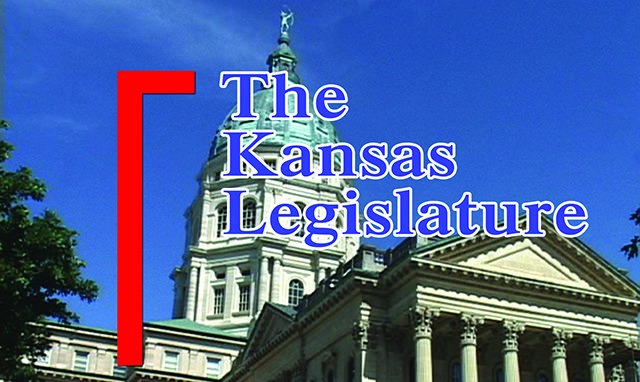Administrators and board members at Great Bend USD 428 and at Barton Community College are watching several bills making their way through the Kansas Legislature that could affect education.
Great Bend USD 428 Superintendent Khris Thexton gave a legislative update at last Monday’s school board meeting.
Senate Bill 271 would repeal the sunset provision for the high-density at-risk weighting, relating to the Kansas school equity and enhancement act. Last year, Great Bend received $733,000 through this funding formula, Thexton said.
Thexton said the House is also looking at updating bond equalization.
“Prior to July 2015, bonds that were passed by USD 428 would have qualified for bond equalization state aid of 52%,” Thexton explained. “After legislation, all bonds for USD 428 passed after July 2015 would qualify for 20% bond state aid. The bill that has been introduced would increase state aid for bonds passed by USD 428 to 46%.”
Another House bill would reduce the liability to businesses that allow high school students to do job shadowing on the premises.
Finally, the Senate’s “Truth in Taxation” bill, SB 294, establishes notice and public hearing requirements prior to approval by a governing body to exceed its certified tax rate for property tax purposes.
The Garden City Telegram reports Senate Bill 294, modeled on a longstanding Utah law, was introduced by Sen. Caryn Tyson (R-Parker). She said it would require municipal units of government receiving more than $5,000 annually in property tax revenue to send notices to residents with an estimate of the projected increase in property tax revenue tied to valuation adjustments.
Higher education bills
Barton Community College’s Board of Trustees chairman, Mike Johnson, also spoke about proposed bills this past week. Johnson, who is also vice chairman of the Kansas Association of Community College Trustees, gave a legislative update during last Tuesday’s BCC board study session.
Johnson said the Legislature is considering the “Kansas Promise Act,” which supposedly would provide “free tuition” to Kansas community colleges. Johnson said this act has the potential to pass and may have merit but he objects to the use of the term “free tuition.”
The Kansas Promise Act provides a scholarship for any Kansas high school graduate to attend a Kansas trade school, technical college or a community college with a focus on one of the 10 high-need areas of labor in the state.
Barton’s Dean of Institutional Effectiveness Charles Perkins told trustees, “Kansas Promise will require a lot of funding and reporting.”
The requirements of compiling mandated reports for State and Federal institutions are costly and time-consuming, Johnson noted.
For example, due to previous legislation, the bottom of the BCC website includes a link titled “Taxpayer and Student Transparency Data.” The link offers a menu with more than a dozen more links, such as board meeting schedules and minutes, financial reporting, tuition and fees, and cost of attendance. By July 1 of this year, all community colleges will be required to offer a similar link, Perkins said. Another link on the transparency data pages shows the bill that led to its creation, House Bill 2144.
Johnson said a new bill being considered, House Bill 2519, would add to the burden of compiling data for reports. The bill creates the Students’ Right to Know Act to provide information on postsecondary education options. It requires the State Department of Education to compile certain information each year. The detailed list of items to report includes the average total student loan debt incurred by an individual who receives a degree or certificate, the average salary for individuals upon graduation, and more. The state department of education would be required to prepare and publish on its website a Student Graduate Horizon Scorecard and distribute it annually to school guidance counselors in each public secondary school in the state.





